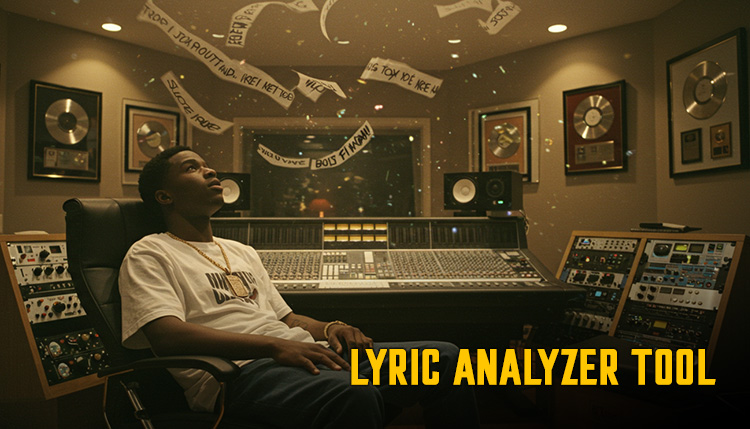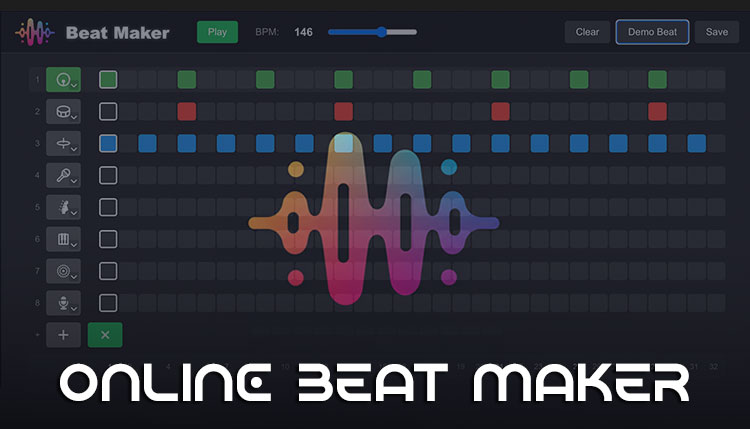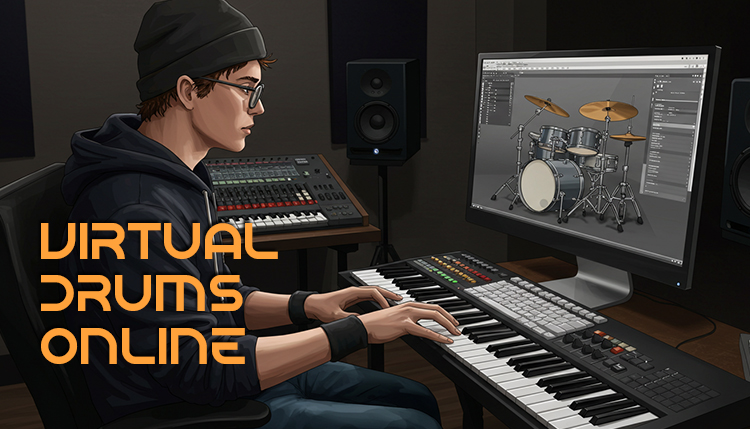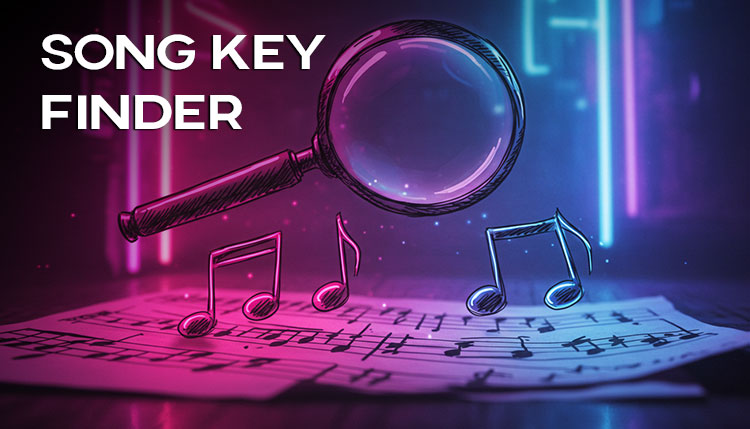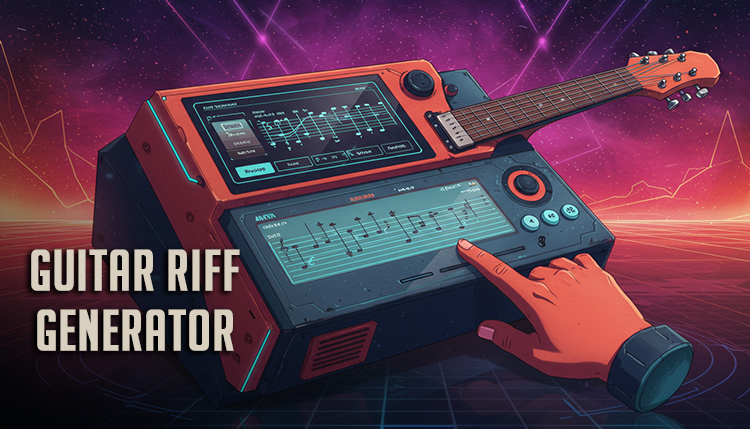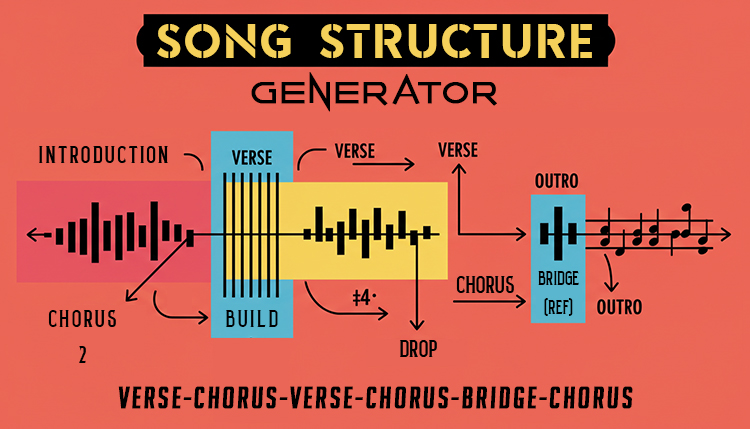Ever heard the saying, “Less is more”? Well, sometimes, especially in songwriting, it’s true.
A concise, powerful lyric can hit way harder than a rambling verse.
That’s where a Lyric Word Count Calculator comes into play! This isn’t just about tallying up words; it’s about gaining valuable insights into your writing style.
It’s like having a second set of ears (or eyes, in this case) to help you refine your craft.
This tool helps you make sure your lyrics are impactful, memorable, and perfectly paced.
It gives you the data you need to make informed decisions about your songs.
Let’s see how this baby can boost your songwriting game!
Lyric Analyzer Tool
Analyze your song lyrics for word count, repetition, and unique words.
Analysis Results
Total Words:
Unique Words:
Repetition: %
Average Word Length: characters
Longest Words:
Average Song Time Length:
Top 5 Words:
Understanding Total Word Count & Song Structure
Okay, so, total word count.
Seems pretty basic, right? But it’s actually super important for how your song flows.
Think of it like this: a short, punchy pop song isn’t gonna have the same word count as a sprawling, epic rock ballad.
Pop songs usually hang out in the 100-300 word range.
They’re designed to be catchy and to the point.
Rock songs, especially ballads, can go way over that, telling a story or building up to a big emotional climax.
Knowing your total word count helps you make sure your song fits the style you’re going for.
Plus, it’s crucial for timing.
If you’re aiming for a radio-friendly three-minute track, you gotta keep an eye on that word count.
You don’t want a ten-minute epic when you’re aiming for radio play, unless you’re going for a progressive rock vibe, which is totally different.
You can use this tool as a songwriting template to keep yourself on track.
This is part of song structure analysis and helps you make sure the song flows.
Also, this can affect the lyric density of your song.
If you have a lot of words, it’s a dense song. If you have fewer words, it’s less dense. It’s pretty straight forward.
It gives you the ability to make sure you are in the right ballpark for the kind of song you are writing which helps with song optimization.
It’s all about understanding how the total word count impacts the overall feel and impact of your song.
So, yeah, total word count – not as boring as it sounds, right? It is a key part of song metrics.
Analyzing Lyrical Variety with Unique Word Count
Alright, let’s talk about unique words.
This is where things get interesting.
Unique word count basically tells you how many different words you’re using in your lyrics.
It’s a measure of lyrical complexity and lyrical vocabulary.
If you’re using the same words over and over, your lyrics can start to sound a bit repetitive, right? Nobody wants that.
A high unique word count shows that you’re using a wider range of vocabulary, which makes your lyrics more engaging and interesting.
It’s like adding different colors to a painting; it gives it depth and texture.
Now, don’t get me wrong, repetition can be effective, especially in choruses and hooks.
But if your entire song is just repeating the same few words, it’s gonna get old real fast.
Using a lyric analyzer can help you ensure you aren’t overusing words.
So, how do you boost your unique word count? Well, try brainstorming synonyms for words you tend to overuse.
Use a thesaurus, or just think about different ways to express the same idea.
Challenge yourself to use words you wouldn’t normally use.
It’s all about expanding your lyrical vocabulary and making your lyrics more dynamic.
Mastering Repetition with the Repetition Percentage
Repetition: it’s a powerful tool in songwriting, but you gotta use it wisely.
The repetition percentage in a Lyric Word Count Calculator tells you how often words are being repeated in your lyrics.
Think about your favorite pop songs.
They usually have catchy choruses that repeat the same lines over and over.
That’s intentional! Repetition makes the song memorable and easy to sing along to.
It’s what gets stuck in your head.
But, like anything, too much of a good thing can be bad.
If your entire song is just one line repeated a million times, it’s going to get annoying.
You need to find the right balance.
A higher repetition percentage can work well for genres like pop or EDM, where catchy hooks are essential.
But for other genres, like folk or country, you might want to aim for a lower repetition percentage to focus more on storytelling and lyrical depth.
It’s important to make sure that the repetition supports the meaning of the song.
For example, if the song is about heartbreak, repeating certain words can emphasize the pain and longing.
Optimizing Lyrical Complexity with Average Word Length
Ever notice how some songs use really simple words, while others use big, fancy ones? That’s where average word length comes in.
It’s all about lyrical complexity.
The calculator figures out the average number of characters in each word you use.
This can give you a clue about the overall complexity of your lyrics.
Shorter words tend to make your lyrics more accessible and easier to understand.
This is great for mainstream audiences.
Longer words can add a touch of sophistication and depth, but they can also make your lyrics harder to grasp.
It’s all about knowing your audience.
If you’re writing a song for kids, you probably want to stick to shorter words.
If you’re writing for a more mature audience, you might have more leeway to use longer, more complex vocabulary.
This is an important part of lyric density, lyric development, vocabulary analysis and lyric optimization.
The average word length can also affect the pacing of your song.
Shorter words tend to create a faster, more energetic feel, while longer words can slow things down and create a more contemplative mood.
It’s all about finding the right balance to match the overall tone and style of your song.
Highlighting Key Words with Longest Words and Top Frequent Words
This is where you get to really dig into the nitty-gritty of your lyrics.
The calculator highlights your five longest words and your five most frequent words.
This is a great way to do lyrical analysis.
It’s like shining a spotlight on the words that stand out the most.
Your longest words can add a touch of uniqueness and flair to your lyrics.
They can be used for emphasis or to create a memorable image.
Your most frequent words show you which words you’re using the most.
This can be super helpful for making sure you’re emphasizing the right themes and emotions.
If you’re writing a song about love, you’d probably expect the word “love” to be among your top frequent words.
But if you’re writing a song about sadness and the word “happy” keeps popping up, you might need to rethink things.
This can help you avoid overusing certain words and create a more diverse vocabulary.
It’s all about making sure your lyrics are clear, concise, and impactful.
This is a key part of lyric metrics and song metrics and a great way to improve your lyric writing techniques.
Estimating Song Length with Average Song Time Length
Okay, so you’ve got your lyrics written, but how long is your song actually going to be?
The calculator can give you a rough estimate based on the average singing speed of about 165 words per minute.
This is a great way to work on song pacing, structure analysis and song metrics.
Now, keep in mind that this is just an estimate.
The actual length of your song will depend on the melody, the tempo, and how you sing it.
But it’s a good starting point for planning your song’s structure and making sure it fits within any time constraints you might have, like if you’re aiming for radio airplay or a specific set length for a live performance.
For example, if you have 330 words, your song will likely be around two minutes long.
It is important to not that this is just an estimate but is a great way to get a ballpark idea of the length of your song.
The Benefits of a Simple, User-Friendly Lyric Word Count Calculator
Let’s be real, nobody wants to use a tool that’s clunky and confusing.
That’s why a simple, user-friendly design is so important.
A good Lyric Word Count Calculator should be easy to use, even if you’re not a tech whiz.
It should have a clean interface that’s easy on the eyes.
You should be able to just copy and paste your lyrics and get the results you need without any hassle.
No complicated menus, no confusing settings, just straight-up, easy-to-understand data.
Plus, a modern, responsive design is a must.
It should work seamlessly on any device, whether you’re using a desktop computer, a laptop, a tablet, or a smartphone.
You want to be able to access it wherever you are, whenever inspiration strikes.
A simple, user-friendly calculator can really enhance your creative workflow as it removes the technical barriers and lets you focus on what matters most: your lyrics.
Who Benefits from Using a Lyric Word Count Calculator?
Okay, so who’s this tool actually for? Well, pretty much anyone who works with song lyrics can benefit from using a Lyric Word Count Calculator.
But let’s break it down a bit.
First off, songwriters, obviously. This is a key part of the song writing and lyric writing career.
It helps refine lyrics, optimize song structure, and improve overall songwriting skills.
It’s like having a personal assistant that helps you keep track of all the details.
Musicians can also use it to prepare for recording sessions or live performances.
Knowing the length of their songs can help you plan sets and make sure everything flows smoothly.
Educators can use it as a teaching tool to help students understand lyrical composition, word usage, and song structure.
It’s a great way to make learning about songwriting more interactive and engaging.
Websites that cater to musicians and songwriters can also benefit by offering this tool to their audience.
It’s a valuable resource that can attract new visitors and keep them coming back for more and can be valuable for the following:
- Music marketing tools
- Song writing marketing
- Lyric marketing
- Music marketing
It’s a win-win for everyone!
Conclusion
So, there you have it. A Lyric Word Count Calculator is way more than just a simple counter.
It’s a powerful tool that can help you take your songwriting to the next level.
It’s about understanding your lyrics on a deeper level and using that knowledge to create more impactful and memorable songs.
It’s about optimizing your song structure, refining your vocabulary, and making sure your message comes through loud and clear.
Remember, every song is different, so don’t be afraid to experiment and find what works best for you.
Use the data from the calculator as a guide, but always trust your instincts and let your creativity shine.
Now go out there and write some amazing songs! And don’t forget to use our free Lyric Word Count Calculator to help you along the way! Now, go write some hits!

